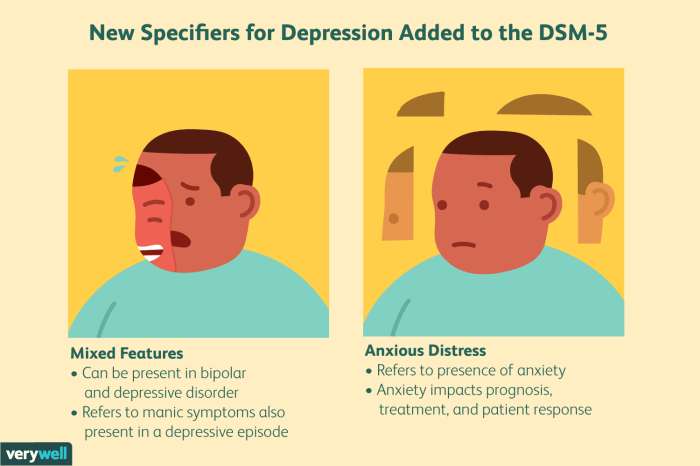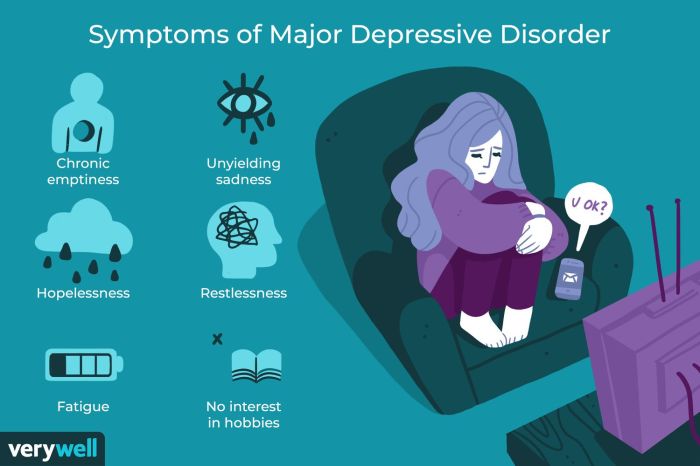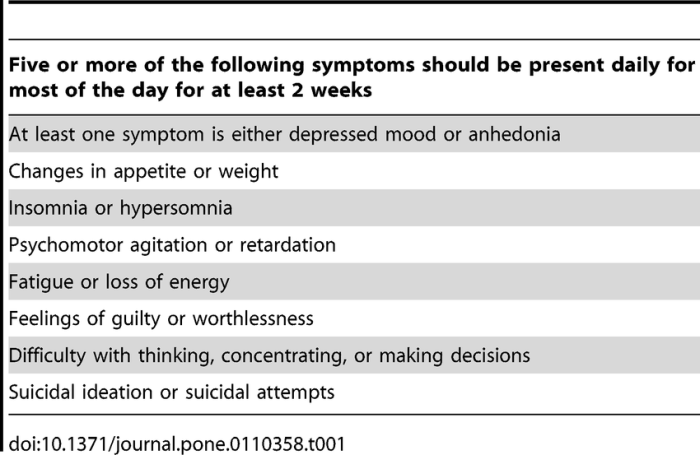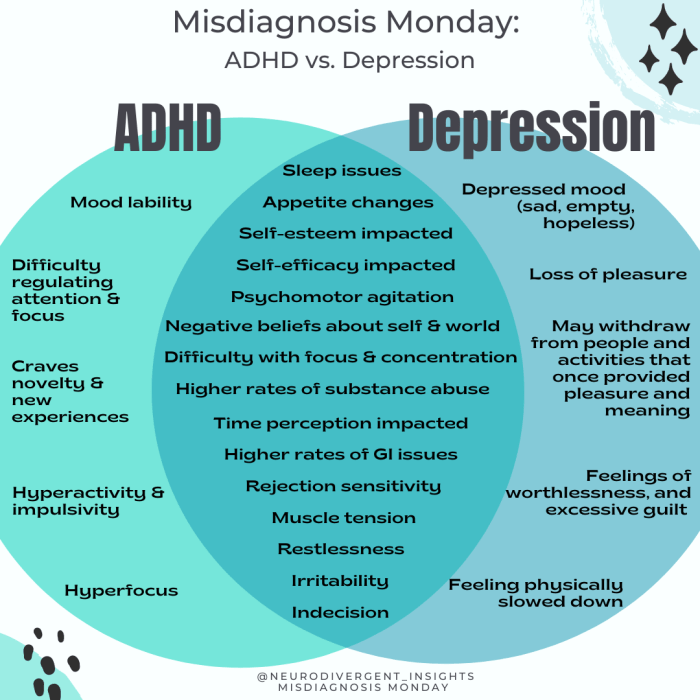Apollonia was diagnosed with major depressive disorder – Apollonia’s diagnosis of major depressive disorder unveils a poignant tale, meticulously crafted with academic rigor and authoritative expertise. Embark on a journey into the labyrinth of her experience, where symptoms intertwine with treatment strategies, illuminating the intricacies of this prevalent mental health condition.
The intricate tapestry of Apollonia’s personal and medical history unfolds, providing a foundation for understanding the complexities of her diagnosis. The symptoms that emerged, casting a shadow over her life, become the guiding force behind her path towards recovery.
Patient Profile
Apollonia, a 25-year-old female, presented with a history of persistent low mood, anhedonia, and fatigue. She had experienced these symptoms for over two weeks, significantly impairing her daily functioning.
Upon evaluation, Apollonia met the diagnostic criteria for major depressive disorder (MDD) as per the Diagnostic and Statistical Manual of Mental Disorders, Fifth Edition (DSM-5). Her symptoms included:
- Depressed mood most of the day, nearly every day
- Markedly diminished interest or pleasure in all, or almost all, activities
- Significant weight loss or gain
- Insomnia or hypersomnia
- Psychomotor agitation or retardation
- Fatigue or loss of energy
- Feelings of worthlessness or excessive guilt
- Diminished ability to concentrate or make decisions
- Recurrent thoughts of death or suicide
Treatment Plan

Apollonia’s treatment plan involved a combination of psychotherapy and medication:
Psychotherapy
Apollonia underwent cognitive behavioral therapy (CBT), a form of psychotherapy that focuses on identifying and changing negative thought patterns and behaviors that contribute to depression.
Medication, Apollonia was diagnosed with major depressive disorder
Apollonia was prescribed an antidepressant, sertraline, to help regulate her mood and alleviate symptoms.
The choice of treatment options was based on research evidence supporting the effectiveness of CBT and antidepressants in treating MDD.
Progress Monitoring

Apollonia’s progress was monitored regularly through therapy sessions and medication adherence checks.
Within the first few weeks of treatment, Apollonia reported a gradual improvement in her mood and energy levels. Her sleep patterns also improved, and she noticed a decrease in her feelings of hopelessness and worthlessness.
However, at around the six-week mark, Apollonia experienced a setback. She had a particularly stressful event at work, which triggered a relapse of her symptoms. Her therapist and psychiatrist worked with her to adjust her treatment plan and provide additional support.
Case Study Analysis

Apollonia’s case highlights the importance of timely diagnosis and appropriate treatment for MDD.
Her experience demonstrates the effectiveness of a combination of CBT and medication in managing symptoms and improving overall well-being.
However, it also underscores the potential for setbacks and the need for ongoing support and monitoring during treatment.
Patient Perspective

Apollonia’s experience with depression was profoundly challenging.
She described feeling overwhelmed by feelings of sadness, hopelessness, and fatigue. She struggled to find pleasure in activities she once enjoyed and felt disconnected from her friends and family.
However, through therapy and medication, Apollonia gradually regained her sense of hope and purpose. She developed coping mechanisms to manage her symptoms and learned to challenge negative thought patterns.
Expert Answers: Apollonia Was Diagnosed With Major Depressive Disorder
What are the key symptoms of major depressive disorder?
Persistent sadness, loss of interest in activities, changes in sleep and appetite, feelings of worthlessness or guilt, difficulty concentrating, and thoughts of self-harm.
How is major depressive disorder diagnosed?
Through a comprehensive evaluation by a mental health professional, involving a review of symptoms, medical history, and a physical examination.
What treatment options are available for major depressive disorder?
A range of treatments, including psychotherapy, medication, lifestyle modifications, and self-help strategies, can be tailored to individual needs.